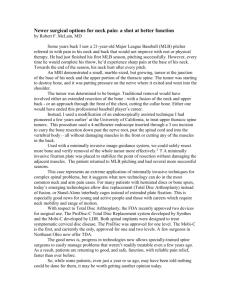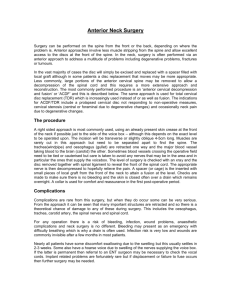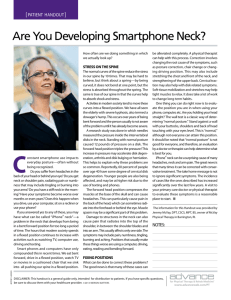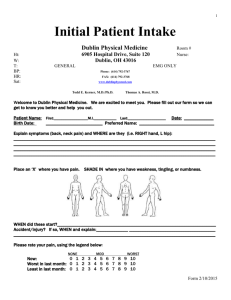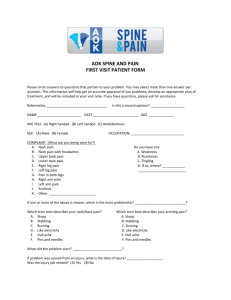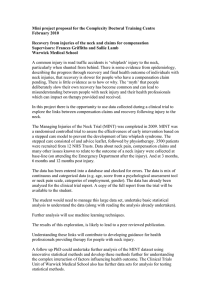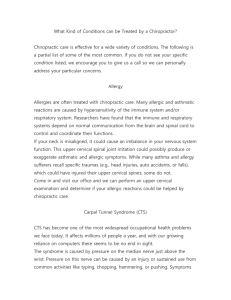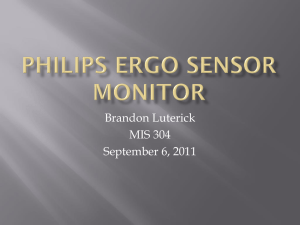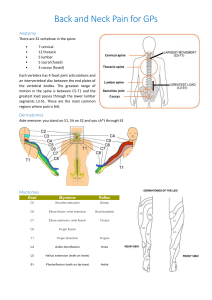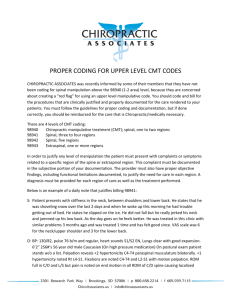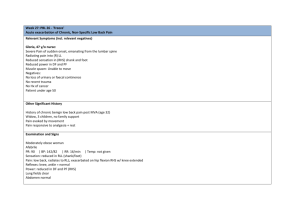CERVICAL SPONDYLITIS
advertisement
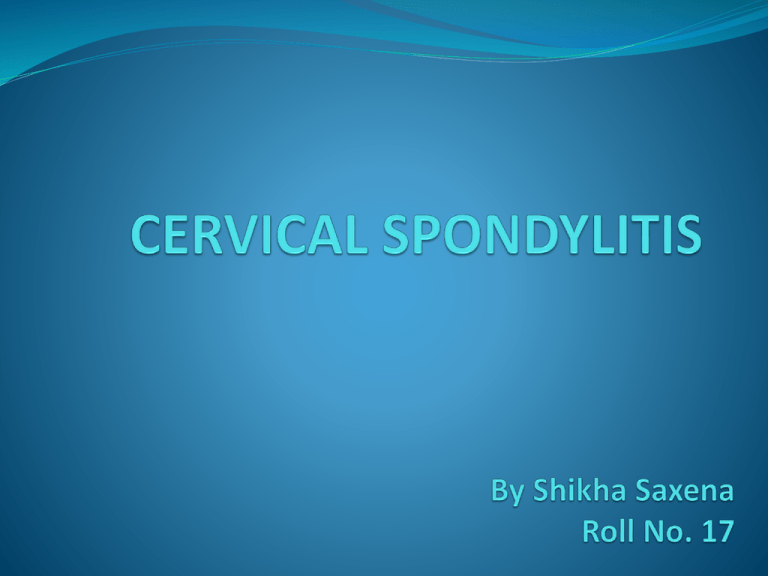
INTRODUCTION Inflammation of one or multiple bony vertebrae of the spine. Spondylitis is one of the most common causes of back and neck pain and is essentially the result of an inflammation of the vertebral joints. If not treated it may lead to Slipped disc, which if not treated leads to Spondylosis. Cervical Spondylitis Slipped Disc Spondylosis Causes Any injury to vertebrae or disc Sedentary life style Excessive work for a long time causing exhaustion Long term depression – due to deadline stress, hopelessness, defeat, etc. Major risk factor is aging. By age 60, 70% if women and 85% of men show changes consistent with cervical Spondylitis. Symptoms Neck pain (may radiate to the arms or shoulder) Loss of sensation or abnormal sensations of the shoulders, arms or (rarely) legs Weakness of the arms or (rarely) legs Neck stiffness that progressively worsens Loss of balance Headaches, particularly in the back of the head Loss of control of the bladder or bowels (if spinal cord is compressed) Yogic Management Neck and Spinal exercises: The simple exercises of neck movements facilitate the practice of further range of Yogic techniques by loosening the joints and muscles. These practices are foreword, backward, sideward (turning and bending) and twisting movements. Yogasanas: Tadasana, Katichakrasana, Ardhachakrasana , Konasana, Pavanmuktasana, Ustrasana, Vakrasana, Bhujangasana, Dhanurasana, Makarasana and Shavasana Yogic Management Cont.. Pranayama: Ujjayi, Bhramari, Suryabhedana and Anulom-vilom Meditation: Full body awareness Tips to a Healthier Neck Always stretch before exercise or other strenuous physical activity At home or work, make sure the work surface is at a comfortable height Don’t lean when standing or sitting. When standing keep the weight balanced on the feet. Sit in a chair with good lumbar support and proper position and height for the task. Keep the shoulders back. Switch sitting positions often and periodically walk around the office or gently stretch muscles to relieve tension. If one must sit for a long period of time, rest the feet on a low stool. Wear comfortable, low heeled shoes. Avoid weight lifting in poor postures. Tips to a Healthier Neck Sleep on the side to reduce ay curve in the spine. Always sleep on a firm surface. Maintain proper nutrition and diet to reduce and prevent excessive weight. A diet with sufficient daily intake of calcium, phosphorus, and vitamin D helps to promote proper bone growth. If one smokes, quit smoking. Smoking reduces blood flow to the spine and causes the spinal discs to degenerate. Avoid excessive stress. Stress will also contribute to the pain intensity. Thank You!
